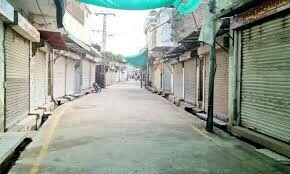WHILE Pakistan’s bilateral trade with Iran remains negligent, the sanctions re-imposed by the United States will further worsen the situation.
US President Donald Trump’s decision to withdraw from the Joint Comprehensive Plan of Action (JCPOA) has created uncertainty regarding Islamabad’s intention to pursue its trade liberalisation plan with Tehran.
Bilateral trade peaked to $1.2 billion in 2009, but subsequently declined and reached to as low as $358.6 million in 2016 — when the JCPOA was signed.
The official spokesperson of the commerce division said the impact of the sanctions, if any, will depend on how these sanctions are applied. It is, therefore, premature to predict their impact on bilateral trade.
It is premature to predict the impact of the sanctions on bilateral trade
Highlighting the issue as one of a political nature rather than an economic one, the spokesperson passed the buck on to the Ministry of Foreign Affairs whose official statement deals with undermining the value of dialogue and diplomacy in the conduct of international relations.
Before the 2016 deal certain countries such as India, China and Russia did manoeuvre around the sanctions via barter trade.
While Pakistan and Iran already have an operational preferential trade agreement (PTA) — with promises of converting it into a free trade agreement by November 2017 — in the two and a half years since the JCPOA was in effect trade relations with Tehran remained non-existent for Pakistan.
It is in this background that officials in the commerce division remain unconcerned about America’s withdrawal from the nuclear agreement, stating that till the time issues previously identified remain unaddressed, it will be difficult to promote bilateral trade with Tehran.
The non-availability of a payment mechanism was a leading road block identified in promoting trade between the two countries.
The central banks of both nations signed a bank payment agreement in April 2017. As per its terms they were to authorise two banks in their respective countries to undertaking trade transactions.
“We have not received a single application from Pakistan’s commercial banks to open a branch in Tehran”, a source in the State Bank of Pakistan said.
In the absence of regular channels, most of the trade has so far been conducted through informal channels.
A comparison of both country’s trade statistics highlight the existence of an active informal channel. Pakistan’s trade figures showed exports worth $35.6m in 2016 and imports of $323.1m while Iran’s figures state exports to Pakistan at $795.9m while imports at $365.46m during the same year.
For undocumented businessmen the popular mode of payment used for trade with Iran is hundi and hawala. With the latest US sanctions, the use of this mode of payment is expected to rise.
A trade expert opines that in the wake of US sanctions Pakistan can work out a barter system for agriculture products like wheat and rice.
The average amount of the produce in dollar terms should be fixed for the next three years, independent of the dollar, so that fluctuation doesn’t affect either party.
Published in Dawn, The Business and Finance Weekly, May 14th, 2018
















































Dear visitor, the comments section is undergoing an overhaul and will return soon.